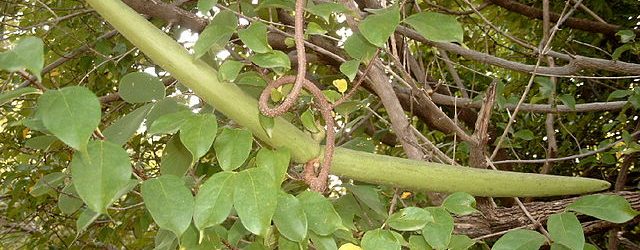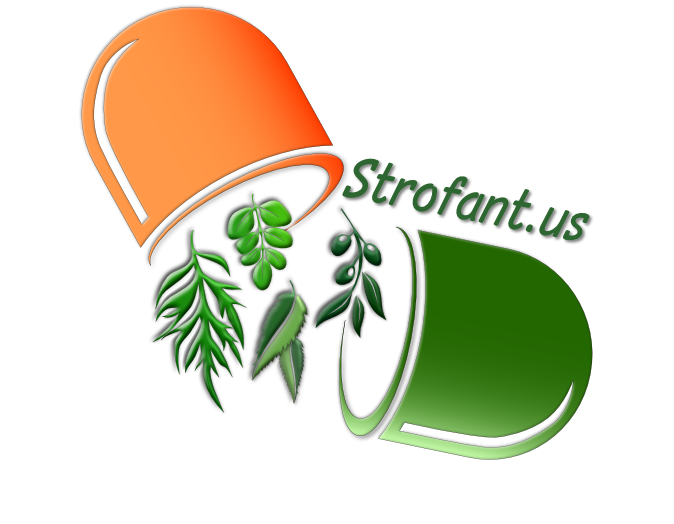The story of Ouabain
The story: David Livingstone, the Scottish missionary, explored the tributaries of the Zambezi in a region of what is now Mozambique around 1850. The expedition participants heard several times about arrow poison that indigenous people used for hunting and also in war. The botanist John Kirk, who was tasked with looking for commercially viable plants, was part of the expedition. He got hold of some of these poison darts and kept them in his luggage. One evening he was feverish and carelessly stowed his toothbrush in the backpack containing the poison darts. The next morning he noticed a bitter taste while brushing his teeth. What irritated him most was that his feverishly accelerated heartbeat suddenly became very calm and slow. The historical moment ends here.
Everything else was routine. In London, the plant was identified as a Strophanthus species whose seeds contained the active substance. Decades later, the pure active ingredient was isolated and it still took almost 150 years before the signaling cascades came into the focus of research. Today, modern medications are developed through intensive research over years or decades. For the discovery of strophanthin, for the handing over of this gift to people, all it took was a happy, brief moment.
Dr. Knut Sroka
But now the story of ouabain, the active ingredient in the plant strophanthus, is largely and somewhat mysteriously unknown. Few family doctors, internists and even cardiologists know of its effectiveness in treating and preventing heart disease and heart attacks, and it therefore remains unavailable to most heart patients.
A book written by German Naturopath Rolf-Jürgen Petry called “Strophanthin = Ouabain”:
The Possible Solution Over Myocardial Infarction,” is a solution to this vacuum of information. However, it’s available only in its original German. We’ve recently posted an article on our website titled “The Story of Ouabain,” which outlines the book’s main points. Dr. Petry became interested in the story of strophanthus/ouabain decades ago, and after his medical training spent many years reading all the original research done on ouabain. This article is a must-read for anyone interested in heart disease or the etiology, prevention and treatment of myocardial infarction (MI, commonly called “heart attacks”).
Dr. Petry not only lays out the history of the benefit of strophanthus/ouabain in the prevention and treatment of MI, but he also addresses directly the many common misconceptions medical doctors and researchers continue to have about its use. The first of these misconceptions is that since ouabain is in the family of cardiac glycosides, like the more commonly used heart drug digitalis/digoxin, it must affect the body in the same way. In reality, the research conclusively demonstrates that at the doses used in practice, as in the strophanthus extract we are using, ouabain not only doesn’t inhibit the sodium/potassium pump, as does digitalis, it actually stimulates the action of this pump.
Therefore, while digitalis is relatively contraindicated for people with angina or MI, ouabain clearly helps these patients. One well-documented way in which ouabain helps people with heart disease has to do with red blood cells and platelets. In one type of cardiac dysfunction that leads to an MI, the red blood cells and platelets become swollen and, as a result, are unable to move easily through the narrow capillaries. This process creates further congestion and clotting in the small vessels, which creates decreased blood flow and further dysfunction in the heart cells. Giving aspirin to heart patients is meant to increase the blood flow through the capillary network. Ouabain, by stimulating the sodium/potassium pump in the platelets and RBCs, has a similar effect. Stimulation of the pump makes the RBCs and platelets less swollen (by increasing the sodium excretion out of the cell) and therefore more able to glide through the narrow passages of the capillaries. This increases blood flow and prevents clots with NONE of the negative consequences of aspirin or other blood thinners.
Another misconception Dr. Petry clears up is connected to animal studies that show that some animals with hypertension have elevated endogenous (self-produced) ouabain in their blood. This finding has led to the common belief that the elevated ouabain causes their elevated blood pressure. This theory is clearly in opposition to the actual studies on people treated with oral ouabain. In my own experience, people with elevated blood pressure experience a lowering of their blood pressure with oaubain, and people with normal BP show no effects. In reality, the conclusion that the elevated ouabain levels in animals cause hypertension is backward. The elevated endogenously produced ouabain is the animals’ attempt to self-treat their elevated pressure levels, not the cause. The proof of this conclusion is that in all such studies, the elevated ouabain levels were found to be “cardioprotective.” That is, the animals with high BP who raised their own ouabain levels (as a protection) clearly showed less heart damage than those animals with lower ouabain levels. This result mimics what happens when we give patients with high BP a small dose of oral ouabain. It not only lowers the BP, but it also protects their cardiovascular system. In essence, ouabain acts as both blood thinner (like aspirin or Plavix) and as a first-line hypertensive drug (beta blockers or diuretics), again, with none of the unwanted side effects.
Furthermore, Dr. Petry also demonstrates with multiple studies that unlike digitalis, oral ouabain lowers the oxygen needs of the myocardial cells. Lowered oxygen requirements mean more efficient respiration, which translates into less susceptibility to injury. Interestingly, this is the exact rationale for giving beta blockers or calcium channel blockers to heart patients. Again, while beta blockers cause people to feel fatigued, make them impotent and depressed, worsen lipid profiles and exacerbate diabetes, oral ouabain makes people feel better, more energetic and is being investigated for its beneficial effects on such diverse conditions as breast cancer, Parkinson’s disease and asthma.
Without doubt ouabain (g-strophanthin) could be one solution of the problem cardiac infarction to a large extent and especially the therapy with orally administered ouabain and the knowledge about this drug has to be brought forward because of medical, ethical and economic aspects.
This is not medical advice, please do your own research.

